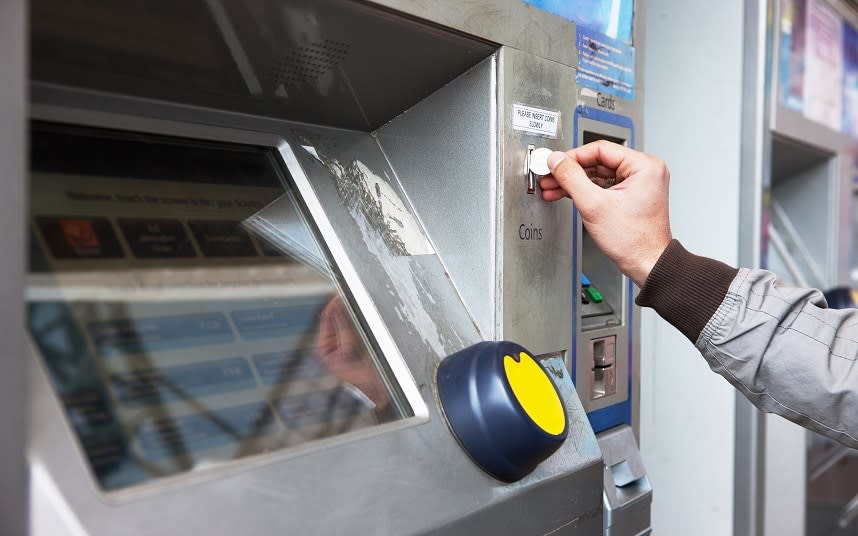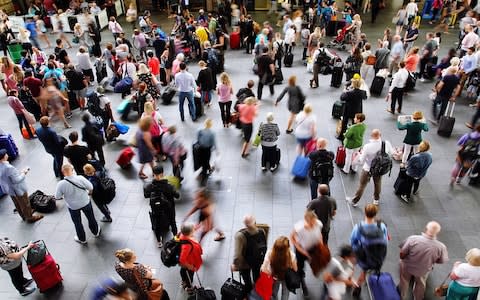Why are millions of rail passengers still getting ripped off at ticket machines?

What's the quickest fiver you've ever made? Mine was last Sunday. When I punched my journey from Herne Hill to Harpenden into the train ticket machine, I was offered a single for £17. Thinking this sounded expensive, I went to the ticket office and bought one for £12.10.
It turns out that one in 11 rail passengers using a ticket vending machine buys the wrong ticket for their journey, according to a recent survey by the Office of Rail and Road (ORR).
The survey, analysing 739 "mystery shops" at ticket machines in train stations around the country, found that six per cent paid too much for their ticket and three per cent bought a ticket without the necessary flexibility – putting them at risk of a fine.
This actually represents progress for rail passengers. In their last survey in 2017, ORR revealed that one in five people using a ticket machine were not buying the appropriate ticket for their journey. Easier-to-use machines and clearer language have helped improve matters.
Responding to the survey, ORR's Deputy Director Stephanie Tobyn said: "All rail passengers should be able to buy the most appropriate ticket for their journey, without being baffled by confusing terminology and innumerable options.

"We are very pleased that such positive developments have been made since the previous research, but there is still more to be done to help users who aren’t getting the best ticket for their journey."
A total of 1.7 billion train journeys are made each year. Of these tickets, 20 per cent are purchased using a ticket machine. This means there are still potentially tens of millions of overpriced rail tickets sold per year.
Office of Rail and Road | Survey results
Following ORR's findings and pressure from a Telegraph investigation, operators agreed to make a series of improvements, including to ensure that machines would tell passengers if they could save money by waiting a few minutes to buy a cheaper off-peak ticket.
However, in a progress report published in December 2017, the Department for Transport revealed that only 30 per cent of machines have implemented the change.
There are also still discrepancies between the fares on offer at ticket machines and ticket offices, as shown in my Herne Hill to Harpenden example. Buying at the machine would have set me back the price of a couple of coffees, but equivalent overcharging on a longer journey could amount to tens or hundreds of pounds for a passenger.
The question is, why is there even the window for this discrepancy at all?
The Rail Delivery Group, who represent train operators and Network Rail, said: "Ticket vending machines are designed to offer a quick and simple range of fares to bust queues at stations. They sell fares at the same price as ticket offices but will sometimes offer a smaller selection to make it easier for people to buy their ticket.
"Train companies want to make the process of buying the right ticket easier and simpler and to improve information about off-peak times to do this. We never want people to pay more than they should which is why all train companies have signed up to the TVM guarantee, committing to refund any difference if people could have bought a cheaper fare."
The ORR has pushed for train operators to provide clearer information on their machines that cheaper tickets may be available from the office. However, they found that the vast majority of passengers (89 per cent) did not see any information that a wider variety of fare options could be available from the ticket office.
On top of this, some 62 per cent reported that their machine did not explain the on- and off-peak times when their ticket could be used. And 44 per cent said that, in a real-world scenario, they would have have abandoned the ticket machine and gone to the ticket office instead.
The world's most beautiful budget train journeys (prices from 42p)
In the last year the UK's 17 train companies have introduced a Ticket Vending Machine (TVM) Price Guarantee, a pledge to refund the difference to travellers who brought a more expensive ticket than necessary.
There is currently no industry-wide data on how many passengers have requested a refund under the TVM Price Guarantee, although Virgin Trains told Telegraph Travel that they have not received a single TVM Price Guarantee request.
As it stands, it's unclear how passengers are supposed to retrospectively learn that a cheaper ticket was available, whether on the machine or via the ticket office.
Top 10 | Ways to save money on UK rail fares
Some scenarios can be imagined, such as if travelling with a friend who has a cheaper ticket, or if it's a repeat journey and the passenger realises they were previously overcharged, but solo travellers on a one-off route have little hope of learning they've paid over the odds.
The Price Guarantee is a necessary buffer, and hats off to the ORR for persuading all train operators into signing up to it, but the real problem clearly lies at the point of sale.
Greater Anglia have introduced one potential solution to the problem. Speaking to Telegraph Travel, a spokesperson said: "We have a 'best fare finder' button on our ticket machines, as well as a button which connects with a ticket agent 24/7 if customers need help buying their ticket."
Even at the fairest price, the UK's railways are up there with the most expensive in the world. The sooner all train companies update their machines to ensure the cheapest possible ticket is being sold for every journey, the better.

